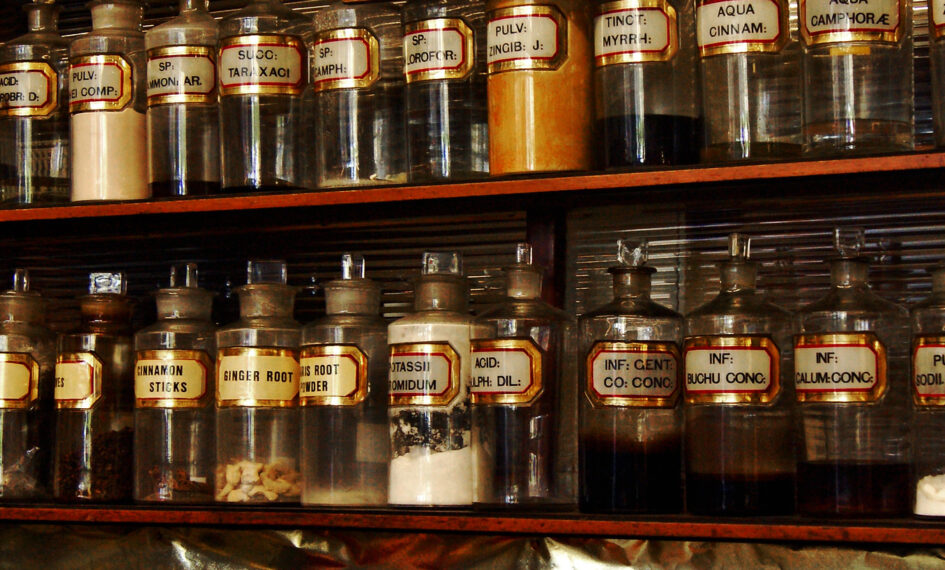Meaning of Apothecary: Historically, an apothecary was a medical professional who formulated and dispensed medications to physicians, surgeons, and patients. The term was equivalent to a modern pharmacist, encompassing both the preparation and sale of medicinal drugs. Apothecaries often operated out of an apothecary shop or pharmacy. Today, the term is sometimes used in a more boutique or artisanal context, particularly in reference to businesses dealing in herbal remedies and natural health products.
Etymology and Origin: The word “apothecary” comes from the Latin “apothecarius,” which in turn is derived from the Ancient Greek “ἀποθήκη” (apotheke), meaning “storehouse.”
- Greek Roots: “Apotheke” originally referred to a place where wine, spices, and herbs were stored.
- Latin Development: In Latin, “apothecarius” was used to describe a person who stored and sold herbs and medicines.
- English Adoption: The term entered the English language in the early 14th century, maintaining its meaning related to the dispensing of medicinal drugs.
- Historical Role: Apothecaries played a significant role in the history of medicine, as they were the primary providers of healthcare and medical knowledge in many parts of the world until the profession evolved into modern pharmacy.
Thus, “apothecary” has its roots in Greek and Latin words associated with storing goods, evolving over time to specifically refer to the storage and dispensing of medicinal substances, reflecting the historical development of the pharmacy profession.



